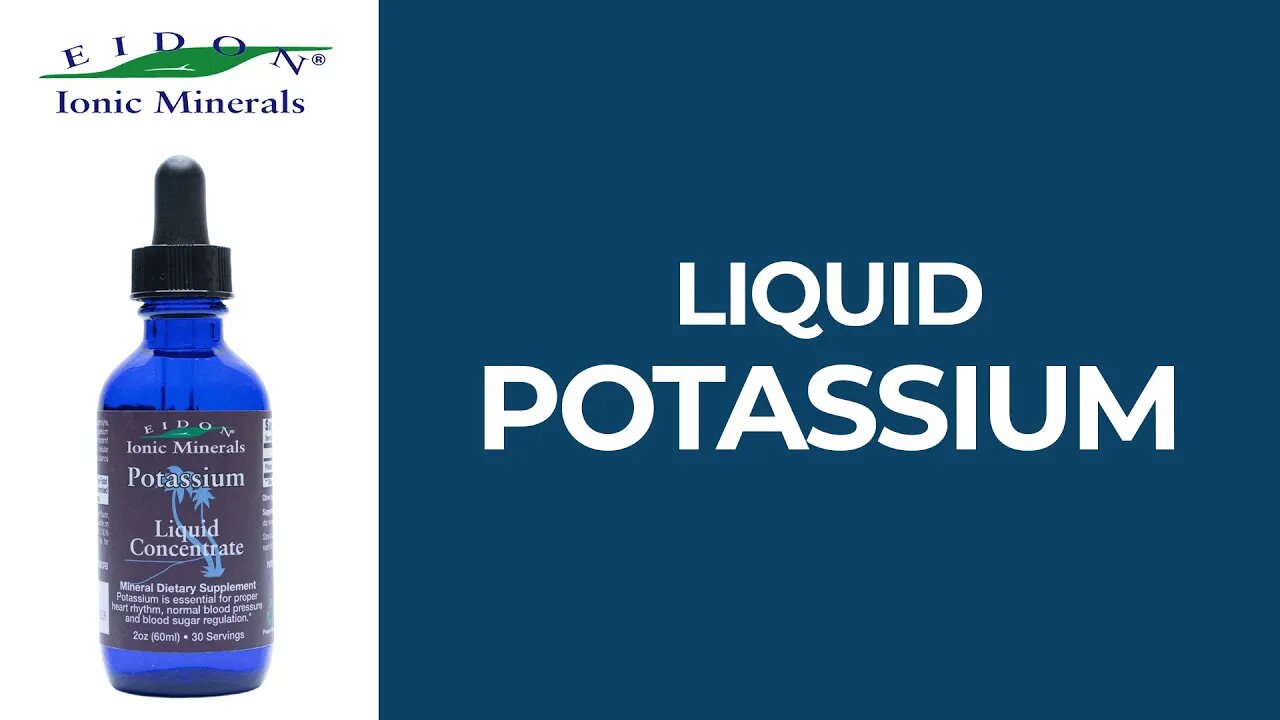Premium Only Content

Potassium is one of seven inorganic, macro mineral nutrients needed in relatively high daily amounts. It is the third most prevalent element in the body after Calcium. Along with Chloride, Sodium, Magnesium and Calcium, Potassium is an essential electrolyte. These elements are called electrolytes because they carry an electrical charge when dissolved in body fluids. These elements are distributed throughout the body's fluids, including blood, lymph, and interstitial fluids, as well as intracellular fluids.
Electrolytes help regulate nerve transmission and many cell membrane functions. Magnesium helps maintain the Potassium in the cells; but even more crucial is the proper Sodium to Potassium balance. Without Potassium, cell function will be impacted. Potassium works with Sodium to regulate blood pressure, transmit nerve impulses, and maintain cellular wall permeability. Along with Magnesium, it is essential for the proper functioning of the heart muscle. In this role, Potassium acts as the catalyst stimulating cellular contraction.
The body should normally contain more Potassium than Sodium, but the standard American diet, with its reliance on fast foods, packaged convenience foods and refined salt, is too high in Sodium and Chloride and too low in Potassium. An imbalanced diet could be as simple as high protein and low vegetable and fruit intake. Research has found that a high Sodium diet with low Potassium intake tends to disrupt blood pressure. This can lead to a doctor's prescription of diuretics, which can cause even more Potassium loss, further aggravating the underlying problems. This mineral is essential in proper amounts for good health.
https://shop.eidon.com/bioavailable-potassium-supplement/#description
-
 0:39
0:39
Alternative & Holistic Health Services
2 years ago3 minerals for your workouts!💪 #eidonminerals #fitness #minerals #electrolytes #workout
54 -
 3:41
3:41
odduncle
3 years agoPotassium And Water Reacting
20 -
 1:12:18
1:12:18
Michael Franzese
19 hours agoLuigi Musical, Trump Attacks, and the Border Crisis: Unfiltered LIVE
29.9K13 -
 LIVE
LIVE
FreshandFit
21 hours agoSandwich Contest w/ Girls, Shiloh Drops N Bomb, Trump 1st 100 Days, Andrew v Prophet Debate on Christian Zionism & MORE Subathon!
16,275 watching -
 LIVE
LIVE
Major League Fishing
4 days agoLIVE! - Bass Pro Tour: Stage 4 - Day 3
607 watching -
 2:01:35
2:01:35
I_Came_With_Fire_Podcast
15 hours agoBlood, Money, & Military Contractors: What They Don't Tell You About Gray Zone Warfare
19K5 -
 LIVE
LIVE
Verlisify
3 hours ago $0.67 earnedWorld's Best Competitive Pokemon Player RANKED BATTLES!
96 watching -
 LIVE
LIVE
a12cat34dog
4 hours agoI AM THE DIVINE CRUSADER :: The Elder Scrolls IV: Oblivion Remastered :: FIRST-TIME PLAYING {18+}
100 watching -
 LIVE
LIVE
MissesMaam
3 hours ago*RTMP Test* Chill n' Chat 💚✨
85 watching -
 5:23
5:23
Talk Nerdy Sports - The Ultimate Sports Betting Podcast
3 hours ago5/3/25 - Winners, Not Wokeness: Game 7 Bets the Media Won’t Show You 🧠🔥
17.9K3